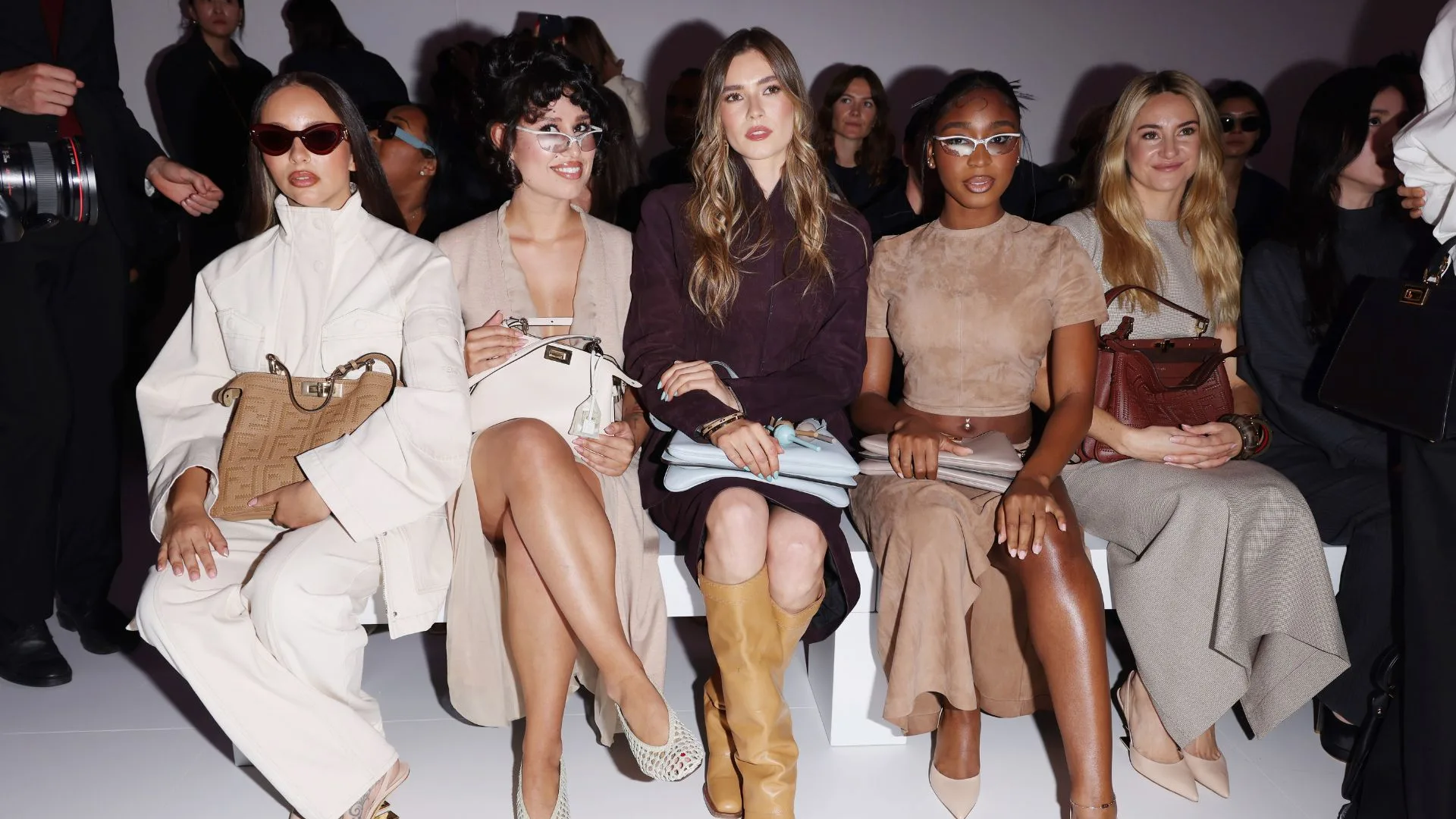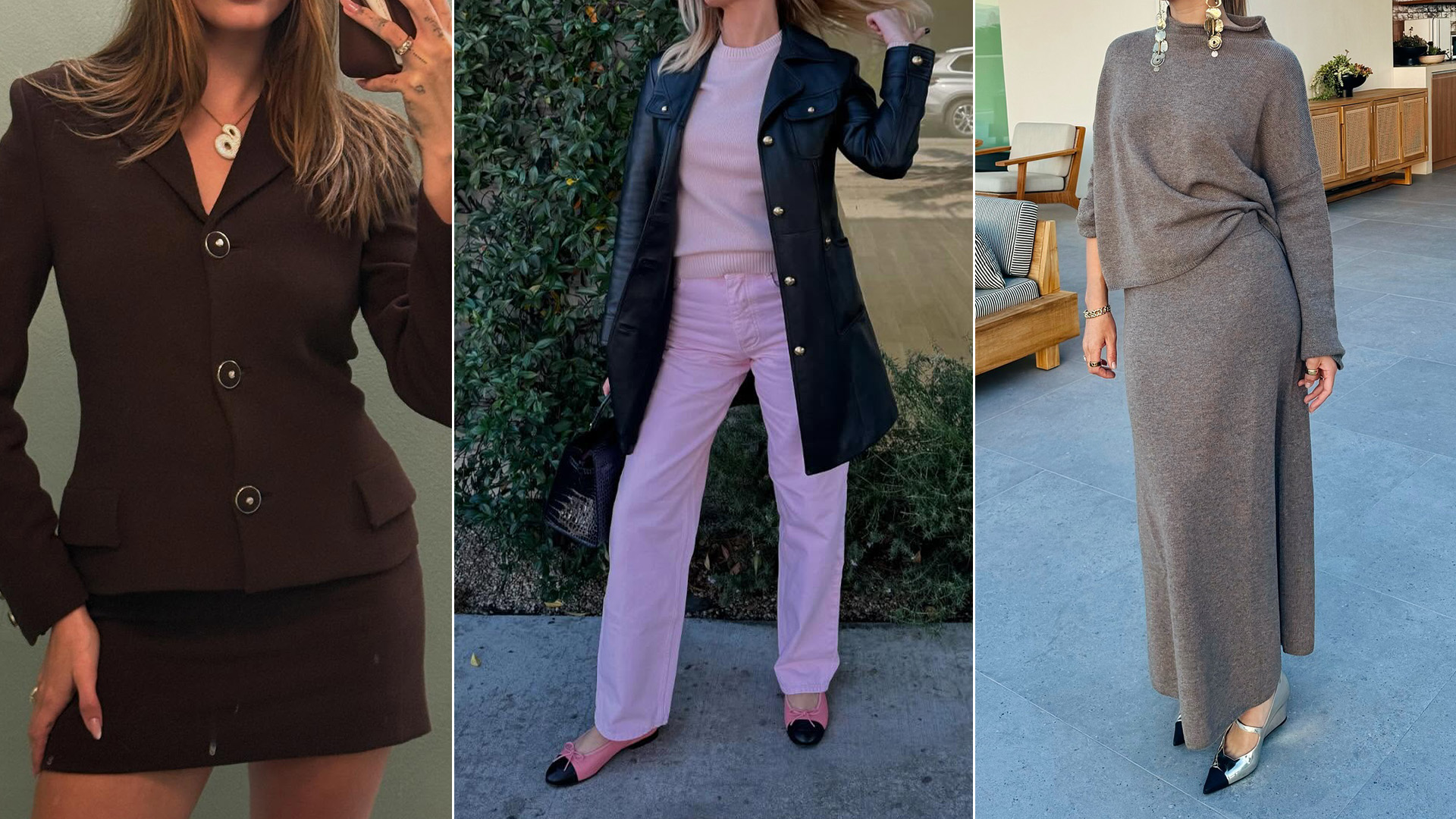Two years ago, New York Fashion Week’s fall-winter 2020 shows operated narrowly unscathed by the emergence of coronavirus. As fashion month continued, COVID-19 spread like a raging wildfire across the globe. Weeks later, fashion shows across Europe were brought to an abrupt halt; in Milan, public access was restricted and models walked down runways without audiences.
Ahead of this fashion month, with the delta and then omicron coronavirus variants spreading fast, the fashion community was on high alert, gauging whether to move forward.
The return of the semiannual event generated cautious yet long-awaited excitement: Designers such as Markarian delved into the metaverse and gave away NFTs, certain celebrity seating assignments spurred chaotic good, and lest we forget, Julia Fox opened LaQuan Smith’s show.
While some legacy brands such as Alice + Olivia opted for virtual collections and others, such as Tom Ford, did not display their latest collections this season, newcomers made their mark on the fashion mainstage, offering their innovative visions of the industry’s future and the space they hope to occupy.
From Eugene Taylor to Bruceglen and Social Work, emerging designers of color came, saw and conquered the long week.
For the fall-winter season, the Black in Fashion Council organized a showroom at Spring Studios highlighting 10 Black-owned labels, ranging from heritage brands such as Ashya to skin-matching, color-inclusive shoe collections like Salone Monet to multipiece labels boasting fabulous frills and silhouettes.
Founded by The Cut Editor-in-Chief Lindsay Peoples Wagner and public relations expert Sandrine Charles, the Black in Fashion Council is a collective created to represent and secure the advancement of Black individuals in fashion and beauty.
Cameroonian American designer Claude Kameni showcased her latest collection, “DAT GIRL,” a symphony of colors inspired by her heritage and roots. From wide palazzo pants to ruched pencil skirts, the styles represented her more modern, comfortable version of ankara, a wax print fabric frequently utilized in West African clothing. Rather than being made of the traditional textile, which can often be stiff, Kameni sought to emulate the bright colors, but with a silk or sateen feel.
Chicago-born designer Letesha Renee helms Eugene Taylor Brand, a unisex design house named after her first muse: her grandmother. Through the Black in Fashion Council, Renee debuted her “I Am Diana” collection, composed of pieces embodying Diana Ross. With ethereal ’70s glam and a touch of modern cuts, the collection is reminiscent of how “Diana Ross oozed confidence,” said Renee.

For twin brothers Bruce and Glen Proctor, co-designers of Bruceglen, their latest collection paid homage to their late mother Rosie Marie Thompson. Their virtual-only digital presentation at fashion week showcased their fall-winter lookbook as well as a brief movie highlighting their earliest fashion memory: making paper dolls adorned in clear packing tape and glitter.
Raised in Washington, D.C., and now based in Los Angeles, the 36-year-old identical twin brothers and preachers have been in the industry for 15 years. They launched a clothing line in 2006 but struggled to sustain it; as a more cost-effective approach, Bruceglen relaunched as an accessories brand, with its slap-on leather cuffs seen on Beyoncé, Coco Rocha and others.
Bruceglen’s signature grenade bag was featured in Saks Fifth Avenue and in blogs such as Fashion Bomb Daily. As the bag ascended in popularity, the brothers began to branch out, preparing for the relaunch of a full fashion brand. However, their return to the runway in spring 2020 was eclipsed by COVID-19.

“As far as Fashion Week was concerned, that was literally the planning of our relaunch and our debut as Bruceglen again. We had designed this whole collection; it was done,” Glen Proctor said. “We had ordered trims from Brazil and we were like, ‘Dang, I guess that’s not going to happen now.’”
“When one door closes, another bigger, an opportunity that’s a little more tailored for you and for the times, will open,” Bruce Proctor added.
This fall-winter 2022 season not only marked the brothers’ full-fledged return, but also their first time on the official Fashion Week calendar and schedule. Merging rainbows, animal print, shearling and heavy hardware, they debuted a collection that married a luxe ’70s Hollywood glam with their mom’s style, Glen Proctor explained.
“We really scoured the market looking for new trims and how we could use them in an innovative way in handbags. We used a lot of metallics. We really are interested in translating our bright, colorful, rainbow palette to fall textures and weights of clothing,” said Bruce Proctor. “Our goal in designing is to spark joy.”

Michael Loccisano via Getty Images
Social Work designer and founder Chengui “Helen” Zhang channeled the themes of home and identity through her fall-winter 2022 collection. Inspired by the attire of her parents, who are government workers in Beijing, the 27-year-old Chinese designer started her brand in 2018.
“I was visiting my friend’s home,” said Zhang. “She’s an artist and she has these paintings that were hanging in her living room. There were so many strokes … and that gave me an aura of how she is. That’s her safe place. It’s her safe zone in a way that reminds me of how we see homes in the pandemic. They’ve become our workspace, our living space and our space safe. We really have no other choice.”
These blurred boundaries suggest that home and self have become one, said Zhang, and how clothes create and define your persona.

While Social Work began as unisex label, Zhang has since pivoted toward womenswear. Her collection featured the brand’s signature rose element and showcased soft knits, mock necks and turtlenecks while balancing the elevated elements and earth tones of workwear. The woman who wears her clothes doesn’t necessarily have to be considered feminine, said Zhang, but she is a woman who evokes power and is career-driven.
Just as the pandemic inspired her collection, it also compelled Zhang to take action to benefit affected communities. When Social Work partnered with beer company Tsingtao to release a capsule line in March 2020, Zhang donated the profits to Asian American-owned restaurants in New York City.
“I feel like it’s meaningful to do,” Zhang said. “I feel like anyone that has power or has a community that has influence within a group of people, you have a social responsibility. Any kind of community that has the power to gather people, they also have the same responsibility as any brand.”





